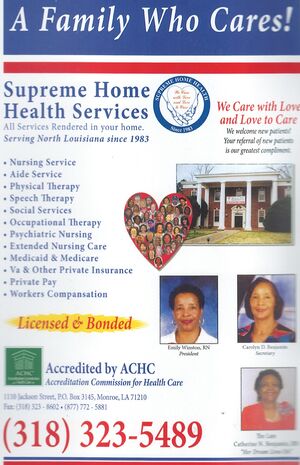Voter Suppression in America
September 10, 2020
When I first assumed the role of Editor for the Monroe Dispatch after my grandmother, Irma Hall DeTiege passed away, I enjoyed reading her old writings. A common thread in a lot of her writings was to encourage readers to vote. That is still an important message that the Monroe Dispatch continues to share. September is known as Voting Rights Month, and is marked as a time to gain education about voting rights, spread info about voter registration, and encourage all who can to activate their right to vote. All this month, the Monroe Dispatch will highlight vital information about voting in Louisiana and other valuable researched information about voting. I wish I had a beautiful story to share of how easy voting has been for Americans, specifically Black Americans in our country, but the harsh truth is that voter disenfranchisement in America is as traditional as apple pie. In preparing my writing for this topic, I found many gut-wrenching documented accounts about how Blacks were hunted, lynched, shot at - you name it - all done with the intention to prevent and scare our ancestors away from activating their rights as American citizens. When the United States governing principles were formed, Blacks were considered mere property. In 1870, the passage of the 15th amendment gave voting access to Black men but was a far cry from providing true access to all American people. Many things like poll taxes, grandfather clauses, property tests, literacy tests, and intimidation and fear tactics were established to create barriers for Blacks to exercise their right to register and vote. These barriers remained a problem for many decades. Civil Rights activist Fannie Lou Hammer learned about her constitutional right to vote in 1962 through the Student Nonviolent Coordinating Committee (SNCC) and was kicked off the plantation where she lived with her husband and family for expressing interest in voting. She resisted her plantation owner’s wishes after being told she should resend her voter registration application. She was followed and attacked by racists and forced to relocate (this is a mild abbreviated account of her experience), before she attempted to take the mandatory literacy test a third time, finally passing. Over her lifetime, she’d been in many near-death ordeals in pursuit of voting equality and civil rights. Hammer went on to become a field secretary for SNCC and dedicated her life to educating and registering other Blacks. For me Fannie Lou Hammer will always be remembered for the aphorism, “I am sick and tired of being sick and tired.” Some relief came in 1964 with the passing of the Civil Rights Act and the Voter Rights Act of 1965, setting on record that poll taxes, discrimination and intimidation of any kind were unlawful. Unfortunately, the country soon saw a more covert means of voter suppression, including new civil death tactics. Civil death, the loss of voting rights due to felony convictions, has always been one of the most significant barriers for Black Americans. Specific laws for each state make it even more challenging to contend. In 2018 Florida passed Amendment 4, restoring the right to vote to over a million ex-felons for its state. This was a significant victory in restoring American's right to vote but was further amended to require those interested in voting to pay fees in order to vote. In Louisiana, those who have misdemeanors are still eligible to vote, but those with felonies (even if on parole) are required to wait five years before they can regain their voting rights.







Reader Comments(0)